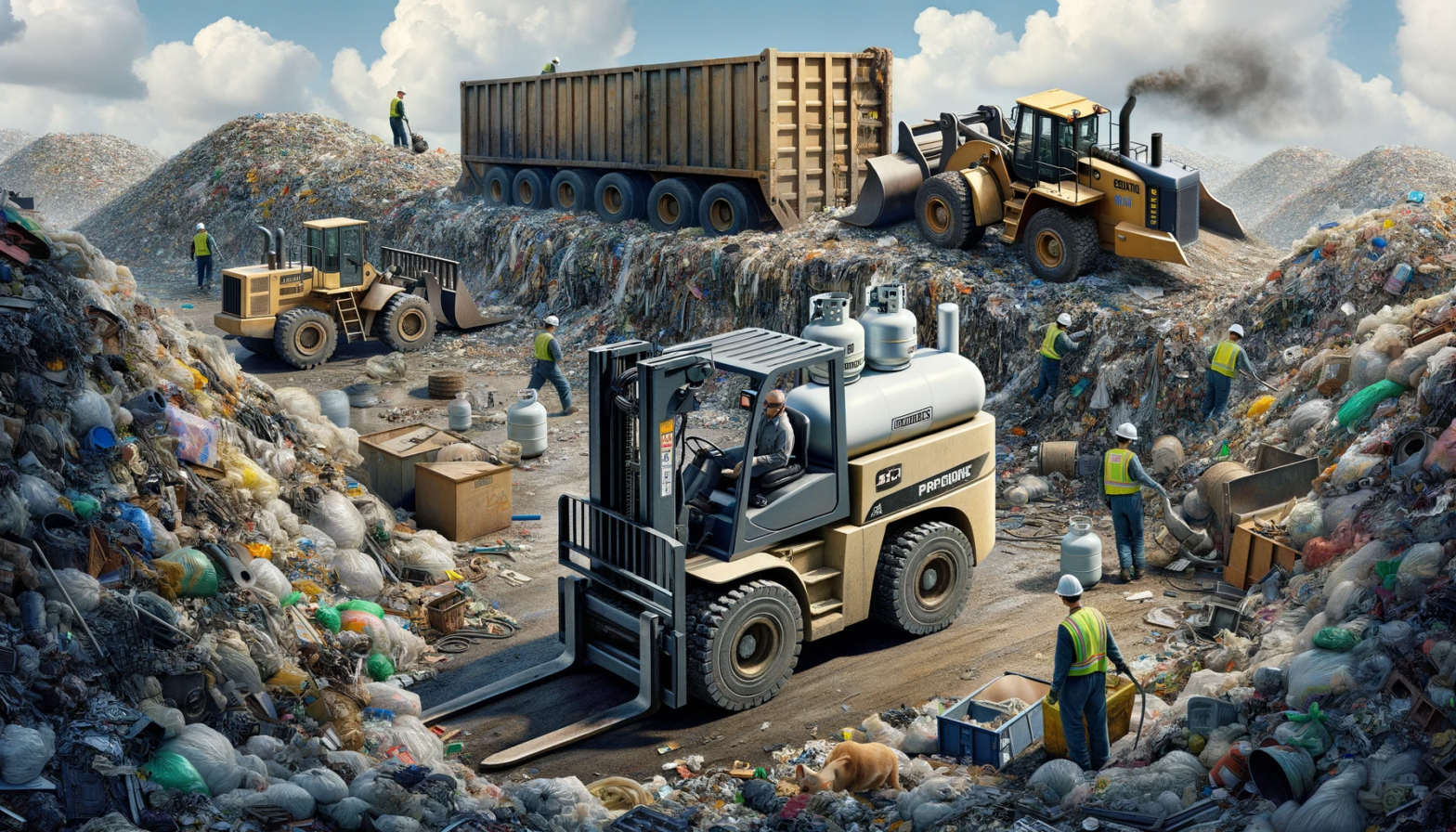Propane’s Role in Sustainable Waste Management

Landfills, historically associated with environmental challenges, are undergoing a transformative shift towards sustainability. Propane, a versatile and clean-burning fuel, is emerging as a key player in landfill operations. This resource can contribute to more sustainable waste management processes by powering on-site equipment, vehicles, and generators while emphasizing the central role of capturing and utilizing methane to reduce greenhouse gas emissions.
Landfill Gas-to-Energy
Landfills naturally produce methane during the decomposition of organic waste. Traditional waste management practices involve capturing and utilizing this methane as a valuable energy source through landfill gas-to-energy projects. These initiatives help reduce greenhouse gas emissions and harness the power of a byproduct that would otherwise contribute to climate change.
Propane-Powered On-Site Equipment
Propane is increasingly being used to power various on-site equipment in landfill operations. From bulldozers to forklifts, propane-fueled machinery offers a cleaner alternative to traditional diesel-powered equipment. This transition not only reduces emissions but also contributes to improved air quality within and around landfill sites, enhancing the overall environmental impact of waste management.
Propane in Vehicle Fleets
Landfill fleets, including collection and transport vehicles, are essential components of waste management operations. Propane’s use as a vehicle fuel is gaining popularity, providing a cleaner-burning option compared to traditional gasoline or diesel. Propane-powered vehicles not only reduce emissions but also contribute to energy efficiency, aligning with the broader goal of sustainable waste management practices.
Powering Generators with Propane
Generators play a crucial role in ensuring continuous power supply for various operations within landfills. Propane-powered generators offer a reliable and cleaner alternative to diesel generators, contributing to reduced air pollution and greenhouse gas emissions. This shift aligns with the commitment to sustainability, showcasing how energy needs can be met without compromising environmental responsibility.
Economic and Environmental Advantages
The adoption of propane in landfill operations brings forth a range of economic and environmental benefits. Propane-powered equipment and vehicles contribute to operational cost savings, while simultaneously reducing the carbon footprint of waste management activities. As a domestically produced fuel, propane enhances energy independence and supports the broader goal of transitioning to cleaner, more sustainable energy sources.
Propane’s role in landfill operations goes beyond being a fuel—it’s a catalyst for sustainable waste management. By powering on-site equipment, vehicles, and generators, propane contributes to cleaner air, reduced emissions, and overall improved environmental stewardship. However, the core focus remains on capturing and utilizing methane, the primary gas produced in landfills, in energy production initiatives. As landfills evolve into hubs of sustainability, propane stands as a valuable ally in the journey towards greener waste management practices.














